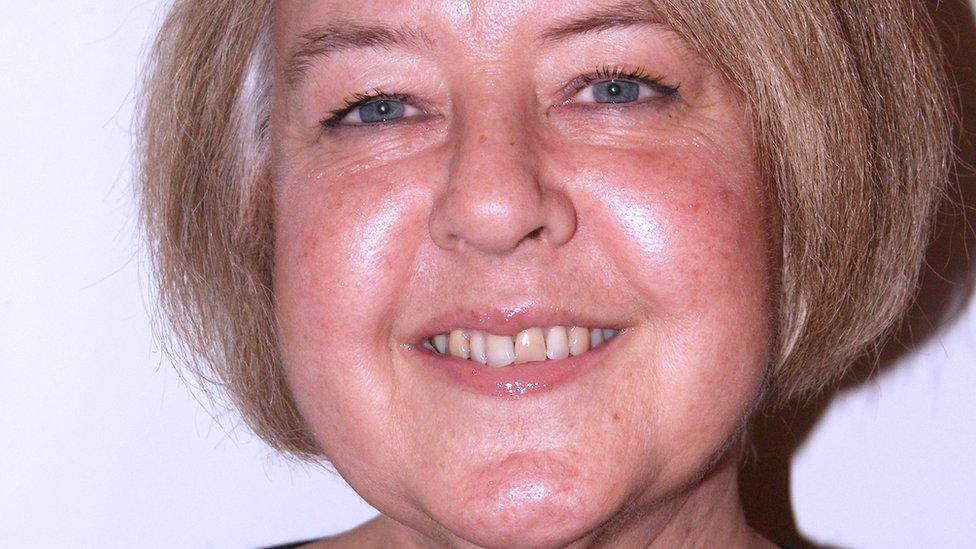Pancreatic cancer: Governments give up on patients, woman says
- Published
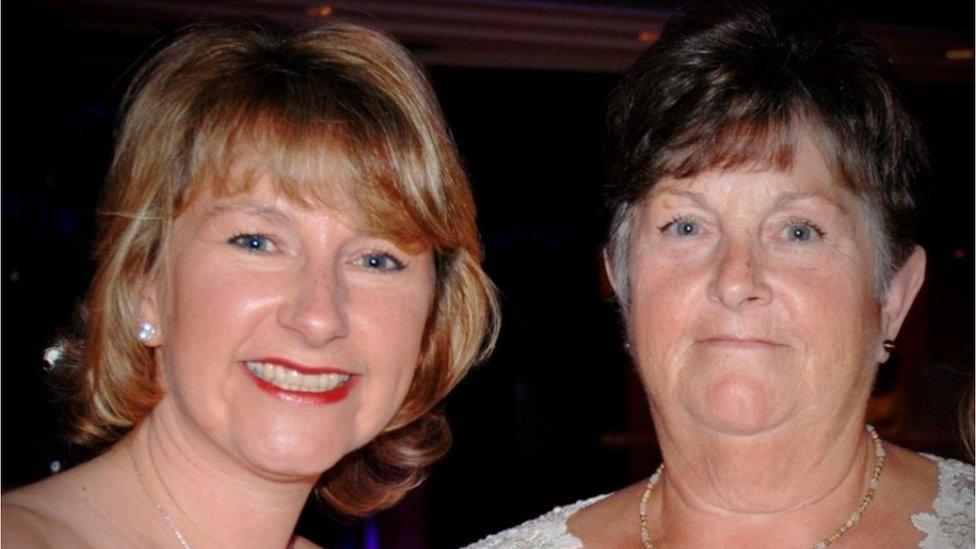
Sam Weldon's mother Sylvia Lloyd died within five months of being diagnosed
A woman whose mother died from pancreatic cancer has joined calls for more government investment in research.
Sam Weldon, from Wimborne in Dorset, lost her 78-year-old mother Sylvia Lloyd in January 2023, less than five months after the cancer was diagnosed.
Ms Weldon is supporting a campaign by the Pancreatic Cancer UK charity, which said successive UK governments had not done enough to improve survival rates.
The Department of Health and Social Care said it was working on the issue.
Ms Weldon said her mother became lethargic and also developed back problems in 2021.
Ms Lloyd was initially diagnosed with a heart condition and anaemia before the cancer was discovered in August 2022.
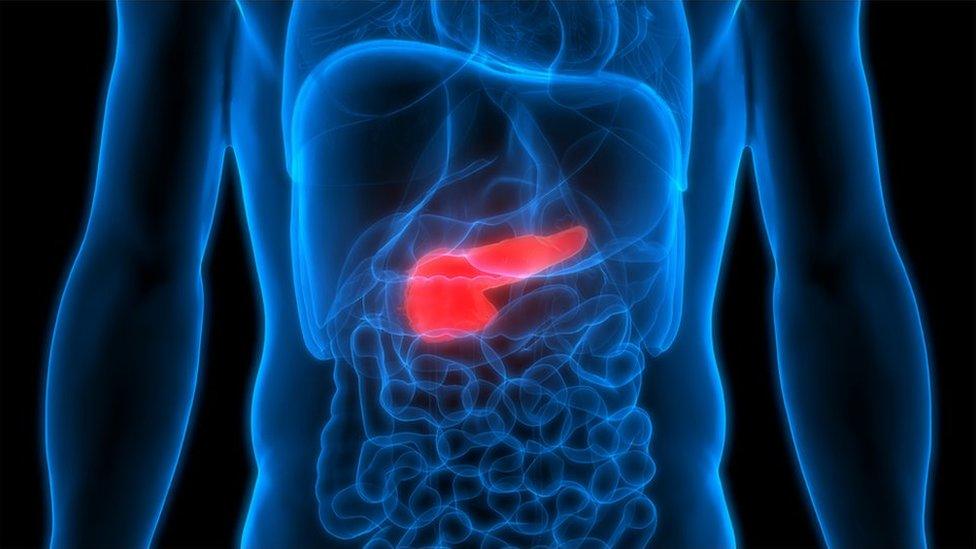
Pancreatic cancer can be hard to diagnose
Her daughter said: "What I find quite difficult to digest is survival hasn't changed since the 1970s.
"Because pancreatic cancer isn't diagnosed until very late, it's almost as if governments say: 'There's nothing we can do about it.'"
Pancreatic Cancer UK said most European countries had better five-year survival rates for the disease than England.
England's rate for those diagnosed between 2010 and 2014 is 7%, compared to 9.6% in Ireland, 10.7% in Germany and 13.7% in Latvia, according to the charity.
The charity's Demand Survival Now campaign, external urges politicians to commit to spending at least £35m a year on research.
It is currently funding a study to produce a breath test, external which could mean early diagnosis.
In a statement, the Department of Health and Social Care said: "Pancreatic cancer is a devastating disease and we remain committed to improving patient outcomes.
"We have invested £2.3bn into speeding up diagnosis and launched 154 Community Diagnostic Centres across England which will help us achieve our aim of catching 75% of all cancers at stage 1 or 2 by 2028.
"We will build on this progress, improving prevention, diagnosis and treatment for all cancers through our forthcoming Major Conditions Strategy."

Pancreatic cancer
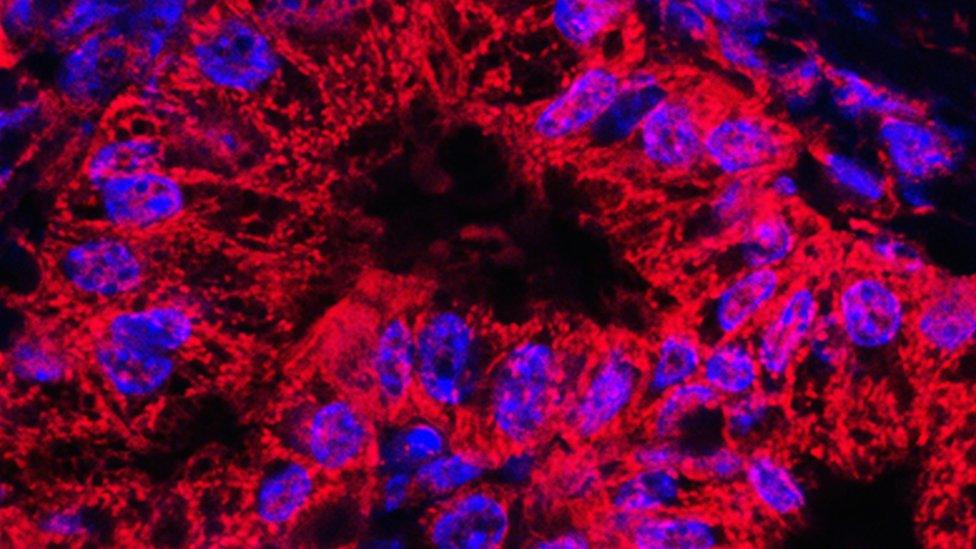
Microscopic image of mitochondrial stained pancreatic cancer cells
Symptoms can include jaundice, itchy skin, darker pee, paler poo, unexplained weight loss, tiredness and high temperature
It can be difficult to diagnose because symptoms often do not appear in the early stages and can point to other conditions
More than half of people with pancreatic cancer die within three months of diagnosis
Three per cent of annual UK research spending on cancer is invested in the disease
(Sources: NHS, Pancreatic Cancer UK)

Follow BBC South on Facebook, external, X, external, or Instagram, external. Send your story ideas to south.newsonline@bbc.co.uk or via WhatsApp on 0808 100 2240, external.
Related topics
- Published15 January 2023
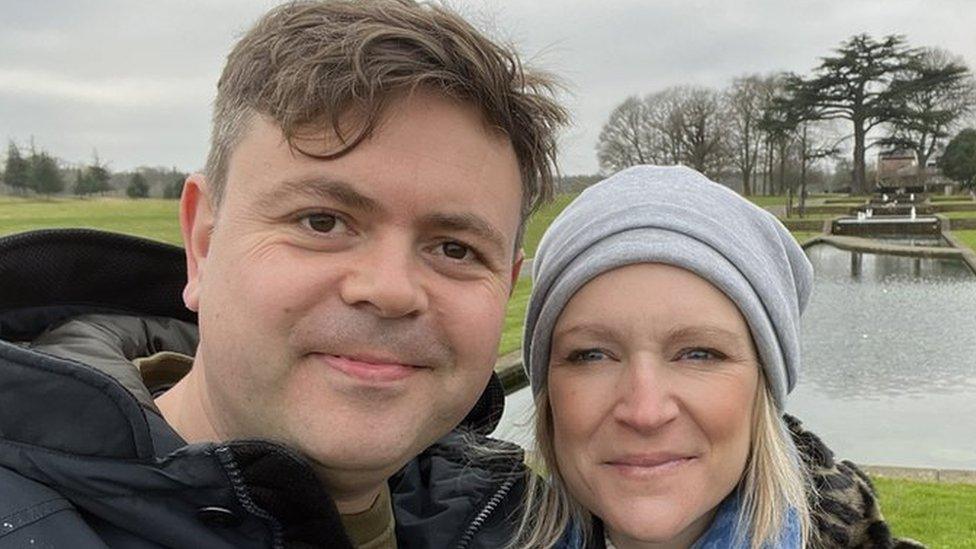
- Published9 March 2022
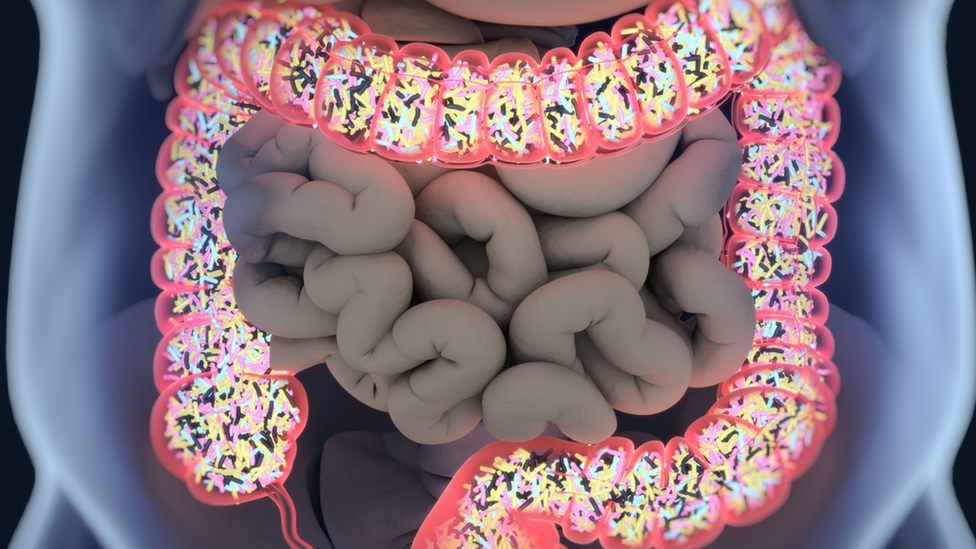
- Published1 November 2017
